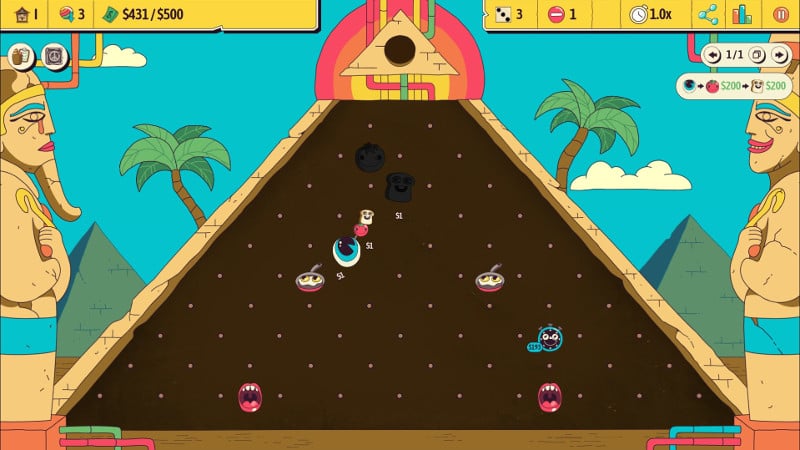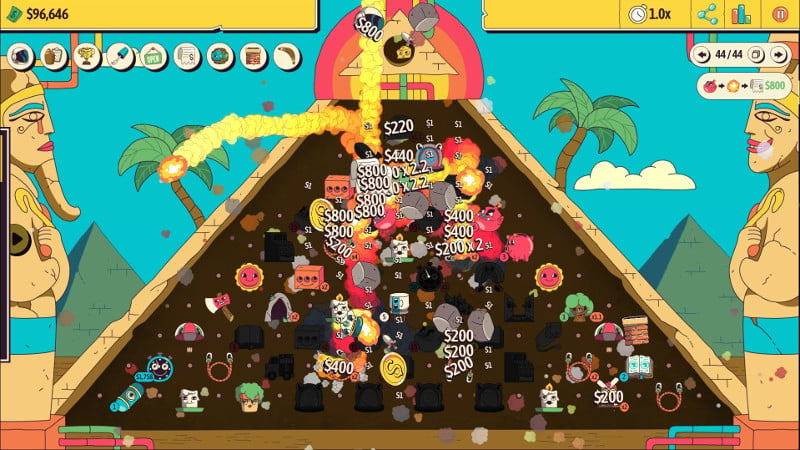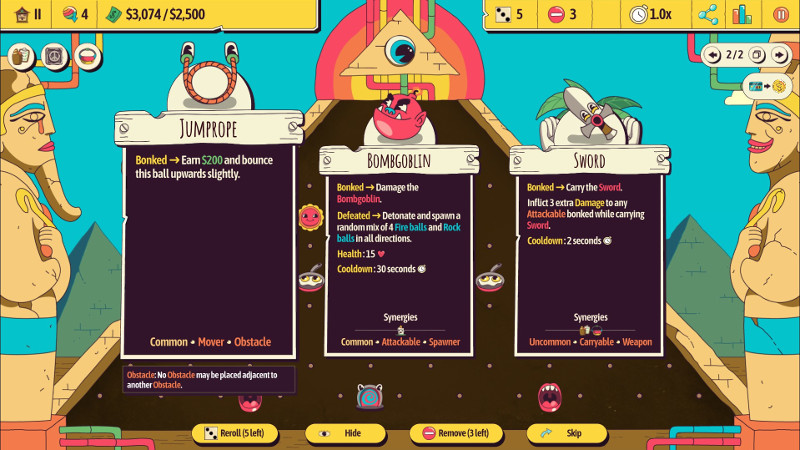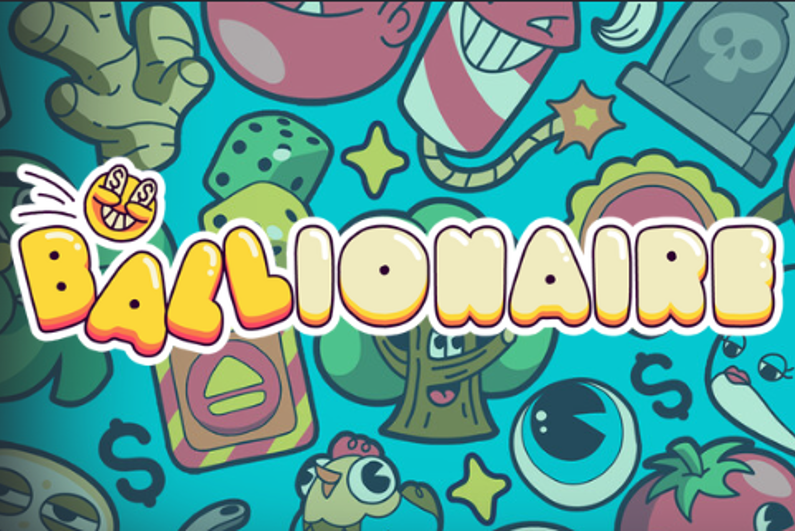If localthunk recommends it…
Did you get a Steam gift card for the holidays? Do you love Balatro and want a similar fix with another video game? I might have just the game for you. Ballionaire, released on December 10, 2024, is a physics-based roguelike that uses pachinko as its mechanic.
I first became aware of Ballionaire via localthunk, the creator of Balatro, who hyped the game just days before Balatro won multiple accolades at The Game Awards:
With sales going on now at Steam and other video game retailers, I figured it was as good a time as any to check out Ballionaire, developed by newobject and published by Raw Fury. And so far, it has delivered.
Place triggers, watch them get bonked
The basics of Ballionaire are simple: place objects on a pachinko-style board and watch balls trigger them as they fall, increasing your money counter. The developer calls the game an “autobonker,” as once the balls drop, you don’t do anything. Just watch the balls bonk the triggers and hope your setup works.
earn an increasing amount of money (“tribute”) to clear each level using a finite number of ball drops
There isn’t much story to the game – you are charged with paying “tribute” to three “elders” on your path from “nonillionaire” to “ballionaire.” Each elder, except on the entry-level difficulty, changes the game with a “tribulation,” which makes your goals more difficult to achieve. There are nine total levels per game, three for each elder – you must earn an increasing amount of money (“tribute”) to clear each level using a finite number of ball drops. Run out of balls before you earn enough money and the game is over.
At the beginning of the game and after each ball drop, you get to choose a trigger from a random set to add to the playing field. Your task is to place the triggers strategically, taking into account synergies, so that the balls bonk them and increase your earnings.
After each cleared level, you also choose from a “boon,” a permanent power-up. Think of boons like Balatro’s jokers.
Vibrant look and feel
Visually, Ballionaire is wonderful. It is colorful, cartoony, and there is a silly, dumb stick figure guy that dances on the menu screens. When your board is filled with triggers and you get some chain reactions going, the screen explodes with fire trails, water trails, rainbows, and more.
The sound design is similarly enjoyable. Most bounces, bonks, and interactions have their own sound effects, from pinball machine dings to unmistakable “boings” and even an “ouch.” Once you play for a while, you can close your eyes and know exactly what is happening.
Ballionaire welcomes you into its goofy world from the jump
Everything, from the triggers to the menus to the environments, appear pleasantly hand-drawn, giving Ballionaire a visual approachability that most games do not have. Every video game can be a little overwhelming when you first load it up, but Ballionaire welcomes you into its goofy world from the jump.
Cascading chain reactions
Ballionaire is not quite as easy to understand at first as Ballatro (yes, I’m going to keep making comparisons to Ballatro), but things round into shape very quickly. The intro game starts you with a few triggers already on the board so you can see how they work. It can be a little daunting to place your own trigger on a mostly empty board – where in the heck should I put this thing and why won’t it let me put it there? – but after a game or two, it all clicks.
The key is the synergies between triggers that create high-scoring chain reactions. For instance, bonk the Brick from below, which might be facilitated by placing a Jump Rope trigger underneath it, and it spawns a Coin Ball. If that Coin Ball bonks a Piggy Bank, the Piggy Bank will hold it and earn you $800 for every ball held.

Or place a Bread and Tomato near each other (each of which earns $200 when bonked and Tomatoes earn more if they are adjacent to other Tomatoes). When they are bonked, a miniature copy will attach itself to the ball (“carried”). If the ball then bonks a Chef’s Pan while carrying two different ingredients, it will create a unique Meal trigger next to it.
In the meantime, if you have the Shopping List boon and a ball holding a Carryable (in the above case, the Bread, Tomato, or both) is about to go off the screen, it will teleport back to its spawn point.

The fun of Ballionaire comes from discovering great synergies and then, with a little luck, watching them produce countless riches. It is oh-so-satisfying to position all your triggers right where you want them and have everything work out just as you envisioned it. As the A-Team’s Hannibal Smith would say, “I love it when a plan comes together.”
Fear the luck gods
Of course, as this is a roguelike, and roguelike based on a gambling game (there is no gambling in this game), there is a lot of luck involved in Ballionaire. And that’s where I wonder if the game will have the same legs as Balatro.
There are three main areas where luck comes into play: 1) the triggers and boons you are offered, 2) the Tribulations that get applied every three levels, and 3) the way the ball bounces down the screen.
Not much you can do if the ball bounces away from your triggers.
To the third point, sometimes, particularly in the early stages of the game when you barely have any triggers on the board, the ball just misses everything and you’re done in a blink. Not much you can do if the ball bounces away from your triggers.
I haven’t found the Tribulations to be too big of a deal yet, but it can definitely feel like a gut-punch when you craft your board just so and then a Tribulation cancels out a significant portion of your strategy.
My main concern is that the randomness of which triggers you are offered after every ball could eventually make Ballionaire too frustrating. Randomness and luck are central factors to games like this, otherwise the gameplay would be the same every run. There are so many triggers – over 125 – that as you unlock them all, the odds of getting the trigger you want get worse. That, in turn, makes strategy and board layout increasingly difficult.

For many players, overcoming that sort of challenge is all part of the fun. I suspect that for many others, there will be a tipping point where the unpredictability will become too great. Fortunately, though, the games don’t require a huge time commitment, and you can always quit and resume at another time.
Two enthusiastic bonks up
Despite my concerns, I wholeheartedly recommend Ballionaire, particularly if you enjoy Balatro. The visuals and sound design are a treat, though I’ll warn you that the theme music can become an earworm.
Necessity is the mother of invention, after all.
The game generally strikes the right balance between luck and strategy and even when the luck factor feels a little too much, it can push you to try strategies that you might not have otherwise considered. Necessity is the mother of invention, after all.
The developer clearly put a lot of thought into the game. I have always been amazed at people like localthunk, The Binding of Isaac and upcoming Mewgenics creator Edmund McMillen, and now newobject, who can come up with dozens or even hundreds of items, abilities, and their interactions and fit them all into a game not only without having it be a mess, let alone making the game tremendous.
Ballionaire retails at Steam for $12.34, but there is a demo so you can try before you buy.




